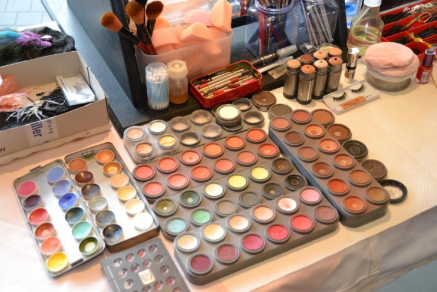
The makeup industry has an issue–specifically, an issue with inclusive product shade ranges. This struggle of inclusive representation has been long standing but has only recently been addressed by a small collection of makeup companies.
Popular cosmetic companies like Rare Beauty, Fenty Beauty, and MAC Cosmetics all have around 50 shades for their foundations, being some of the most inclusive companies in the industry. The companies all have a common downfall, however: the price of their inclusive products. With prices ranging from $30 to $50, as opposed to the more regular price of $15, these brands are almost impossible for the average consumer to purchase on a consistent basis.
By not prioritizing a wide shade range for their customers, companies not only exclude a major portion of possible customers, but they also put themselves in compromised positions. The company Youthforia, for instance, has a minimal 25 shades for their foundation, which at the outrageous price of $48, excludes a large variety of consumers. By not providing inclusive shade rages companies put themselves in a place where they disregard people of all skin tones and minimize their potential profit.
Though it may seem to the common consumer that a company is inclusive for offering a double-digit quantity of shades, quantity doesn’t always beat quality. Many companies offer a selection of darker shades, but the shades do not have a variety of undertones to match and are therefore a waste of time and money for products nobody will purchase. Instead of throwing money towards products that will be left on the shelves, companies should fund research that will result in a better selection of usable shades. Without the right undertone the darker shades end up more gray than skin tone. This does not happen with the more prioritized lighter shades.
Companies that choose to only make products for those with lighter skin tones are preventing others from experiencing this freedom of confidence and prevent certain customers from having the ability to fully express themselves through makeup. Makeup, as a product, has been used as a medium of art and when companies provide fewer tools for expression, they prohibit certain people from being able to participate in this art form.
It is important that companies recognize the significance of having inclusive, affordable products for their customers. Paying an exorbitant price for a product that doesn’t even come close to being a shade match is disappointing. Makeup companies are making large sums of money on their products and should be giving back to their customers by working towards a more inclusive shade range.



